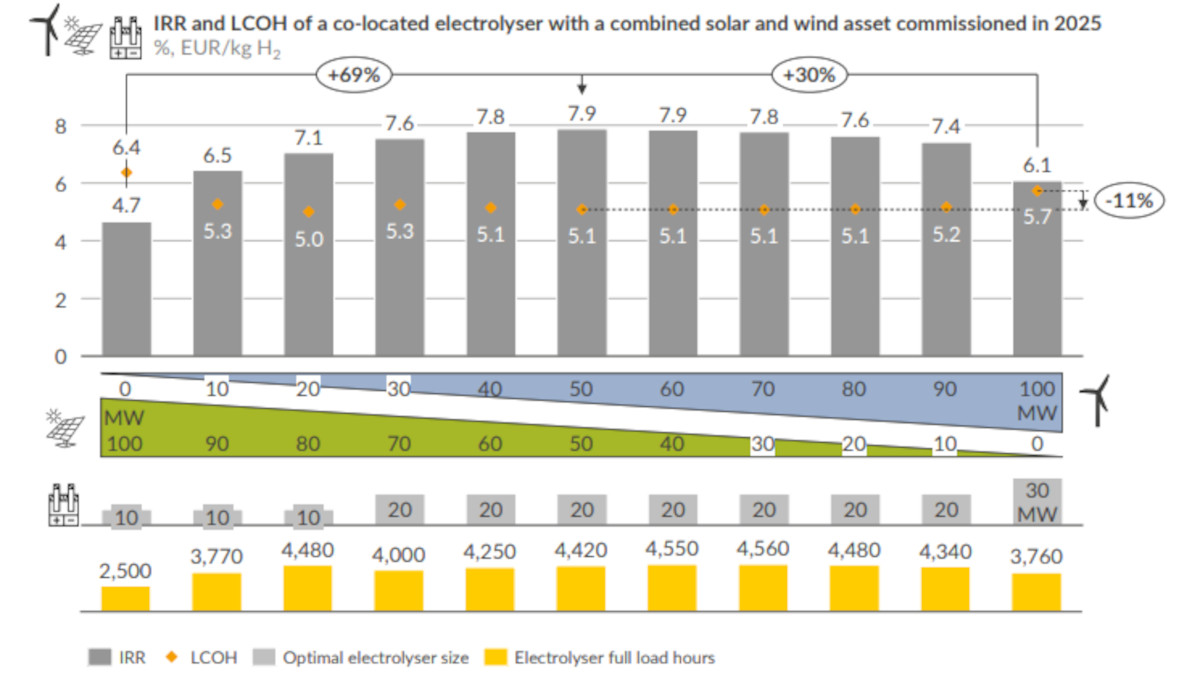From pv magazine Germany
Green hydrogen is considered essential when it comes to decarbonisation and future energy supplies. The hydrogen economy is still in its infancy, but the German government says generation capacity will be increased to 10 GW by 2030.
German consultancy Aurora Energy Research has reported that hydrogen projects with a total output of 21 GW have already been announced in Germany, but only a fraction of them have been realised. The analysts estimate that the industry will need up to 300 TWh of green hydrogen by 2050.
They assumed that the average costs for the renewables-powered production of green hydrogen will fall to around €5 (AU$7.5) per kg by 2025. They also assumed that industrial buyers will not be ready to pay more than €5 (AU$7.5) per kg in the coming years. But from 2030 onwards, they are optimistic that green hydrogen imports will continue to reduce costs. That said, transport infrastructure such as ports and pipelines will need to be set up first.
Aurora Energy Research has determined that at prices of more than €5 (AU$7.5) per kg, the combination of solar with onshore wind farms is the most profitable option. However, maximum project profitability can only be achieved if wind and solar parks are coupled together with small electrolysers for the production of green hydrogen. Aurora Energy Research sees the lowest green hydrogen production costs via the combination of 50 MW of wind power, 50 MW of PV, and 20 MW of electrolysis.
The analysts also assumed that if green hydrogen is generated via power purchase agreements, without direct co-location of a renewables plant, the production costs could also reach €5 per kg.
“Since the locations for the renewable systems can be optimised in these cases and the electrolyser can be built closer to the customers, the costs for hydrogen transport and potentially also for hydrogen storage decrease,” they said.
This content is protected by copyright and may not be reused. If you want to cooperate with us and would like to reuse some of our content, please contact: editors@pv-magazine.com.









33 comments
By submitting this form you agree to pv magazine using your data for the purposes of publishing your comment.
Your personal data will only be disclosed or otherwise transmitted to third parties for the purposes of spam filtering or if this is necessary for technical maintenance of the website. Any other transfer to third parties will not take place unless this is justified on the basis of applicable data protection regulations or if pv magazine is legally obliged to do so.
You may revoke this consent at any time with effect for the future, in which case your personal data will be deleted immediately. Otherwise, your data will be deleted if pv magazine has processed your request or the purpose of data storage is fulfilled.
Further information on data privacy can be found in our Data Protection Policy.